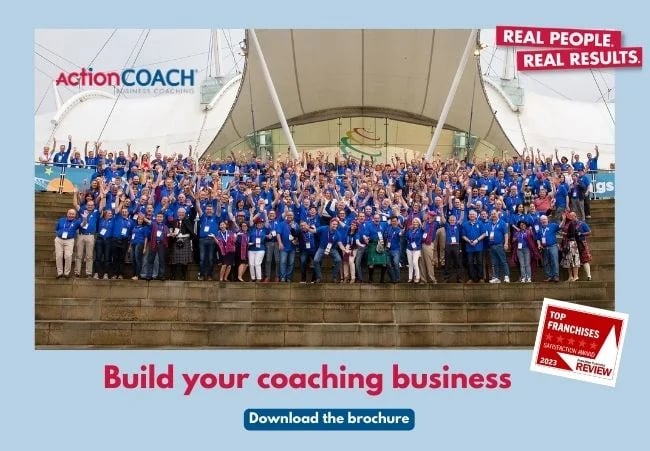Does the idea of being your own boss make you want to leap out of your chair and quit your job today? Have you always had an entrepreneurial spirit but have never known how to start your own business? Sometimes, people are called to the idea of running their own business, but at the same time desire some guidance and support. That’s where franchising comes in. If running your own business sounds like something you’re called to do but you need the additional guidance and support, then you’ve come to the right place. We’ve pulled together a short, 6-step guide featuring the most important things you need to know when it comes to buying a franchise.
6-step guide when it comes to buying a franchise:
Step 1: Consider whether the franchising route is right for you.
Before you begin looking at different franchising opportunities available, it’s important you first determine whether going in to business for yourself, or if the franchising route is right for you. Here are a couple of questions you should be asking yourself at this stage to determine this:
- Do I possess the skills to run a business?
- Do I have the right experience?
- Am I willing to do any job, no matter how big or small, to ensure the success of the franchise?
- Can I commit to running a franchise?
- Will my friends and family support my decision, even if it means initially working longer hours and weekends to get the business up and running?
Step 2: Do I have the capital needed to buy a franchise?
The cost of investing in a franchise greatly varies depending on the type of franchise you buy, and the brand you choose to buy into. And, while there are usually less risks involved in buying a franchise over starting your own business, investing in any business venture has its risk.
So before you decide to start your own business or buy a franchise it is important to consider your financial situation to determine if this is a feasible option for you.
Ask yourself:
- Do I have enough in my savings and do I feel comfortable investing that into a business/franchise?
- Am I in a position to borrow money from the bank to invest in my business/franchise?
It’s important to remember that while there are a few risks in franchising, if you do your due diligence and find a reputable and ethical franchise to buy, it is very likely you will make your money back in a relatively short space of time.
Step 3: Finding the right franchise.
Once you have decided that franchising is the right route for you and that you have the capital to invest in a franchise, it’s time to start thinking about finding the right franchise for you. Firstly, you’ll want to consider the skills and experience you currently possess. However, it’s equally important to consider what you actually enjoy doing. Going into business for yourself should be fun, so thinking about what you like to do and what you’re good at should play an important role in your decision making process.
When finding the right fit, you can think about the industry you want to work in, but also think about the type of work you enjoy doing, such as; office work, retail, hands-on etc. The good news is that you don’t need to have years of specific industry experience when buying the franchise of your choice, any good franchise will provide you with initial training on how to run the franchise as well as additional guidance and support.
Step 4: Do your due diligence.
When buying a franchise, it’s vital you do your due diligence and assess the longevity and sustainability of the franchise. There are many questions you can ask the franchisor in order to assess the current and future state of the franchise, such as:
- Do you have a good financial track record?
- How successful is the franchise and its existing franchisees?
- What kind of training and support do you offer?
- How many franchises have you opened in the last 12 months?
- How many applicants have you rejected?
- How many franchises have failed in the past few years and why did they fail?
There are other means for assessing the health and longevity of a franchise, but asking the above questions is a good place to start.
Step 5: Legal Agreements
Any franchisor who wants to enter into a contractual agreement with a franchisee is required by law to provide the franchisee with a document in four sections, which include:
- Disclosure Document in the format required by the Franchising Code of Australia
- Copy of the Franchising Code
- Receipt document to be signed by the applicant franchisee
- Franchise Agreement
In New Zealand, franchisors must provide similar documents. If a franchisor is unable to provide you with these documents, be very wary of their trustworthiness and business ethics.
Step 6: Finalising the agreement
Once you’ve done your due diligence and checked all the legal documents, it’s time to hire a lawyer to look over the contract. It is important seek legal advice from a lawyer who specialises in franchising as they will know what to look out for based on their years of experience. Only sign the franchise agreement when both you and your lawyer are comfortable with what’s included in the agreement.
We hope this short guide has been useful and has helped you understand the basic process of buying a franchise.
The next steps
Are you called to the idea of becoming a business coach under the guidance and support of a franchise? Click here to learn more about ActionCOACH Franchise opportunities, which features everything you wanted to know about becoming a business coach with ActionCOACH.
Tags:
FranchiseSeptember 6, 2018



.jpeg?width=624&height=427&name=AdobeStock_135386257%20(1).jpeg)
